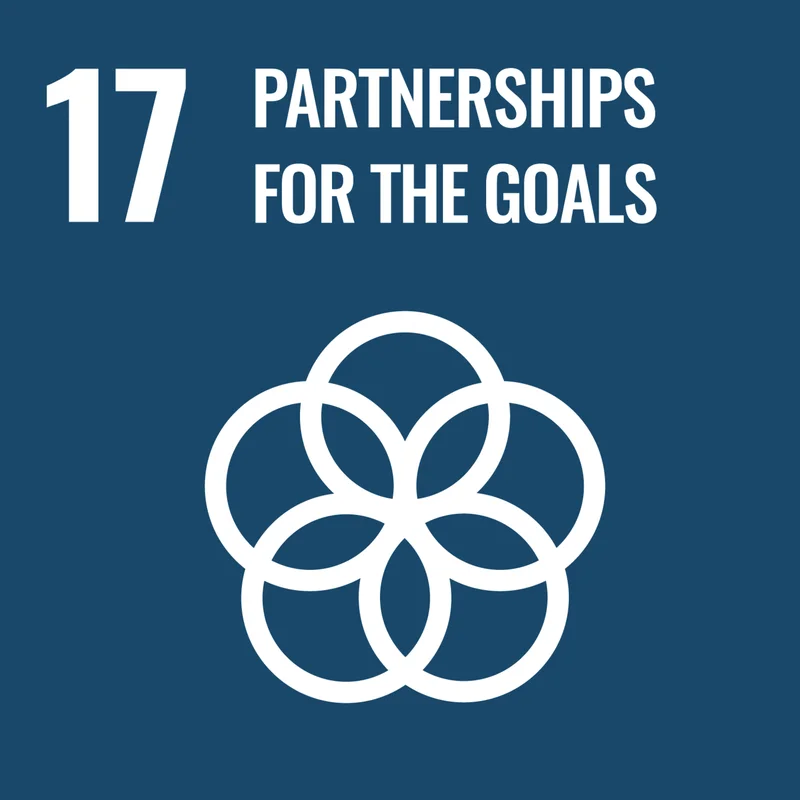SDG 17
Acquiring the means of implementing the Sustainable Development Goals
Achieving the United Nations Sustainable Development Goals (SDGs) requires the creation of cross-cutting partnerships at the international level, as well as cooperation among countries, in particular in support of the efforts of developing countries. However, the tobacco industry interferes at different stages of this process. In particular, it tries to influence negotiations in the international arena, within the World Health Organization, and in other UN bodies.
“Their objective is to obtain information on the ongoing debates, with the aim of influencing their outcome,” emphasises epidemiologist and public health specialist Marcel Tanner. To do this, tobacco companies target people they know within these international bodies and sometimes try to infiltrate the various panels responsible for advising decision-makers, notes the expert.

For example, they intervened to influence the standard for air quality set by the International Organization for Standardization, a Geneva-based body that sets ISO standards. As a result of this interference, the standard stipulates that the adverse health effects of passive smoke can be controlled by a ventilation system.[1]
At the World Trade Organization, tobacco companies argue that certain control measures, such as the requirement to sell cigarettes in plain packages, violate freedom of trade rules. This notably delayed the implementation of such a law passed by Australia in 2011.[12
Sometimes they exploit the delegations of the countries taking part in these debates. In 2012 and 2014, they managed to place people affiliated with pro-tobacco organisations in the Zambian and Italian delegations to the Conference of the Parties (COP) of the WHO Framework Convention on Tobacco Control.[3] However, Article 5.3 of this text says that states parties must ensure that their public health policies on tobacco control "are not influenced by the commercial and other interests of the tobacco industry".[4]
But the weight of the tobacco companies is not only felt in the international arena. “They frequently try to exert their influence on the national level,” notes Marcel Tanner. “They will then particularly target fragile states, especially low and middle income countries (LMICs), which are more likely to listen to their message.” Countries with strong institutions are not immune. “In Switzerland, lobbyists – including those from the tobacco industry – can embed themselves into the federal parliament and exercise their influence there with politicians in complete freedom,” says Tanner.[5] Switzerland also occupies the penultimate and 79th place in the ranking of the Global Tobacco Industry Interference Index established by the Global Center for Good Governance in Tobacco Control (GGTC), ahead of only Dominican Republic.[6]
These interventions can take a variety of forms: drafting "ready-to-use" legislation, obstructing the development of effective laws, contributing to the campaigns of elected officials, funding government public health campaigns and, in the most extreme case, filing a lawsuit against a national anti-tobacco measure.[7]
Tobacco companies are also quick to exploit differences of opinion within the same government. “They tend to concentrate their efforts on the commerce ministry, which is generally more powerful than the health ministry, creating a conflict between these two authorities,” details Marcel Tanner. This tactic has been used in particular in Tanzania, where the trade ministry is integrated into the president’s office.
In another strategy, the tobacco industry does not hesitate to create a priori independent organisations that it finances. Many of them are concentrated in international Geneva or have an office there, because they have direct access to UN bodies. “We also see former WHO officials or collaborators joining these organisations through a revolving door system that gives them undue influence on international health negotiations,” says Marcel Tanner.
These include, for example, the Foundation for a Smoke-Free World, funded by Philip Morris International, or the ECLT Foundation (Foundation to Eliminate Child Labour in Tobacco Growing), supported by major tobacco companies.[8] On the national level, the tobacco giants are frequently behind associations of tobacco growers or restaurateurs. In Switzerland, Gregor Rutz, national counsellor of the Swiss People’s Party, is president of Swiss Tobacco, the organisation representing tobacco product vendors.
In a less direct way, the tobacco industry influences public opinion by hiring public relations companies that hammer home its messages to journalists and NGOs. In Central America, for example, it led a campaign against a tax increase on cigarettes, arguing that this would endanger many jobs.[19 In Russia, it denounced the ban on cigarette companies sponsoring NGOs, claiming that this would impact their charitable activities.[10]
More perniciously, the tobacco industry often funds its own research. "It grants funds to scientists or even entrusts them with research mandates," says Marcel Tanner. “The risk is that these scientists then exclude from their research the results that contravene the cigarette companies’ interests.” Universities require their researchers to declare their interests, but verification of this process sometimes leaves something to be desired.
A famous example relates to passive smoking. After demonstrating in secret laboratory studies the toxicity of exposure to passive smoking, Philip Morris International, along with other tobacco companies, subsequently launched an international research program to deny the dangers of passive smoking.[11]
The fight against tobacco industry influence on the achievement of the Sustainable Development Goals calls for one remedy: more transparency, both in terms of the circulation of information and of funding,” judges Marcel Tanner. And to conclude: “The problem is not the absence of rules, but the lack of their implementation.”
[1] Bialous SA, Yach D, Whose standard is it, anyway? How the tobacco industry determines the International Organization for Standardization (ISO) standards for tobacco and tobacco products, Tobacco Control 2001;10:96-104.
[2] https://portal-uat.who.int/fctcapps/fctcapps/fctc/kh/TIInterference/tobacco-industry-interference
[4] https://fctc.who.int/fr/home
[5] Boschetti, Pietro; Mach, Philippe (2018): Attention, ce parlement peut nuire à votre santé. RTS, 9/6/2018. Available online at https://pages.rts.ch/emissions/temps-present/9732471-attention-ce-parlement-peut-nuire-a-votre-sante.html
[6] https://www.at-schweiz.ch/en/advocacy/tobacco-industry/global-tobacco-industry-interference-index/
[8] https://tobaccotactics.org/wiki/eclt/
[10] Ibidem